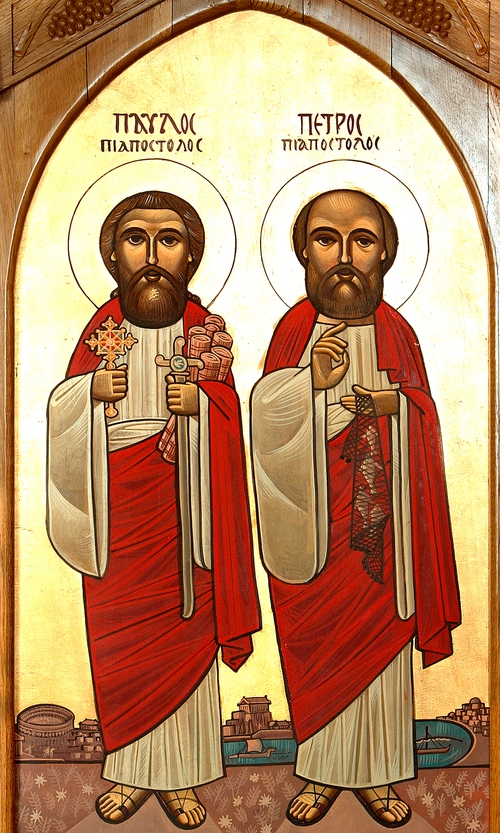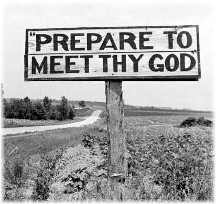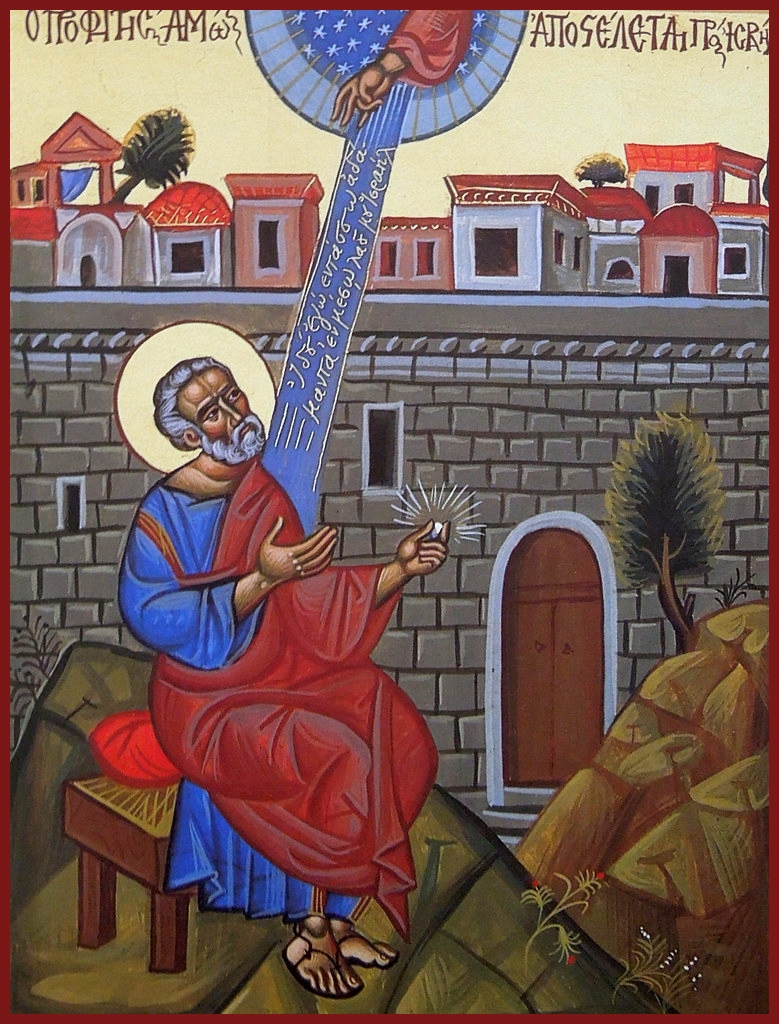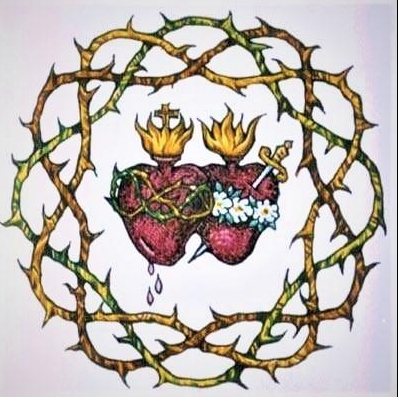These reflections are a result of more than 40 years of ministry as a Roman Catholic priest. Most of these years I spent in the Diocese of Charlotte which covers Western North Carolina. Now I am retired, and live in Medellín, Colombia where I continue to serve as a priest in the Archdiocese of Medellín.

Peter the Apostle, and Paul the teacher of the Gentiles, these have taught us your law, O Lord. (Entrance Antiphon)
https://bible.usccb.org/bible/readings/062922-day.cfm
Today is the feast of the two great apostles, Peter and Paul, that the Church of Rome claims as its founders. Through the ancient city of Rome the churches always show the two apostles together. Although they died in different years, in the celebration of their martyrdoms, the two are celebrated together. Would that we could all say together with Saint Paul:
I have competed well; I have finished the race; I have kept the faith. (2 Tim 4:6-8)
Sainst Peter and Paul, pray for us!

So now I will deal with you in my own way, O Israel! and since I will deal thus with you, prepare to meet your God, O Israel. (Am 3:1-8; 4:11-12)
https://bible.usccb.org/bible/readings/062822.cfm
“Prepare to meet your God.” Probably the most terrifying words in all the Scriptures. Not a threat about Judgment Day, rather the promise of God who comes to rescue the poor. When I was a kid growing up in the South, you could see cross-shaped signs along the highways with this message. Unfortunately, the South never took justice for the poor very seriously. Saint Irenaeus (130-202 A.D.) was declared a doctor of the church by Pope Francis in January 2022. It was Saint Irenaeus who stated in his famous book, Against Heresies, that the glory of God is a human being fully alive.

Thus says the LORD: For three crimes of Israel, and for four, I will not revoke my word; Because they sell the just man for silver, and the poor man for a pair of sandals. They trample the heads of the weak into the dust of the earth, and force the lowly out of the way . . . . Beware, I will crush you into the ground as a wagon crushes when laden with sheaves, says the LORD. (Am 2:6-10, 13-16)
https://bible.usccb.org/bible/readings/062722.cfm
Welcome to the summer of the prophets! In the weekday Masses we will be reading through the prophets until the end of August. Today’s reading is from the Prophet Amos. Amos was from the southern kingdom but preached in the northern kingdom. Amos attacks the false piety of the people and proclaims God’s love for the poor. As my seminary professor used to say, “When politics goes religious, the poor always suffer.”

On the way they entered a Samaritan village to prepare for his reception there, but they would not welcome him because the destination of his journey was Jerusalem. When the disciples James and John saw this they asked, “Lord, do you want us to call down fire from heaven to consume them?” Jesus turned and rebuked them, and they journeyed to another village. (Lk 9:51-62)
https://bible.usccb.org/bible/readings/062622.cfm
Jesus has to rebuke his bloodthirsty disciples. Unfortunately, bloodthirsty disciples have existed in every age, and if we are silent and fail to rebuke them ourselves, then we have failed as disciples of Jesus.

When his parents saw him, they were astonished, and his mother said to him, “Son, why have you done this to us? Your father and I have been looking for you with great anxiety.” And he said to them, “Why were you looking for me? Did you not know that I must be in my Father’s house?” But they did not understand what he said to them. He went down with them and came to Nazareth, and was obedient to them; and his mother kept all these things in her heart. (Lk 2:41-51)
https://bible.usccb.org/bible/readings/062522.cfm
Yesterday we celebrated the Sacred Heart of Jesus, today the Immaculate Heart of Mary—two hearts joined in life, two hearts joined for all eternity in God’s love, two hearts that beat as one.



